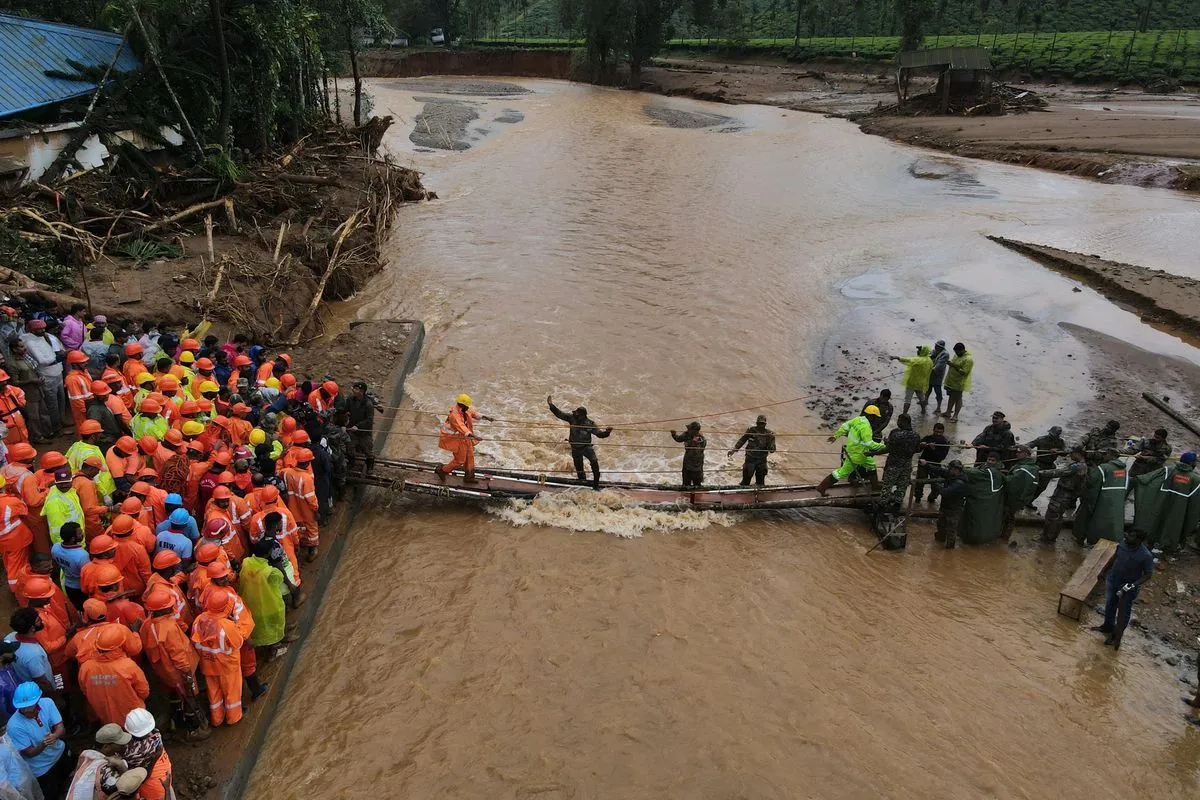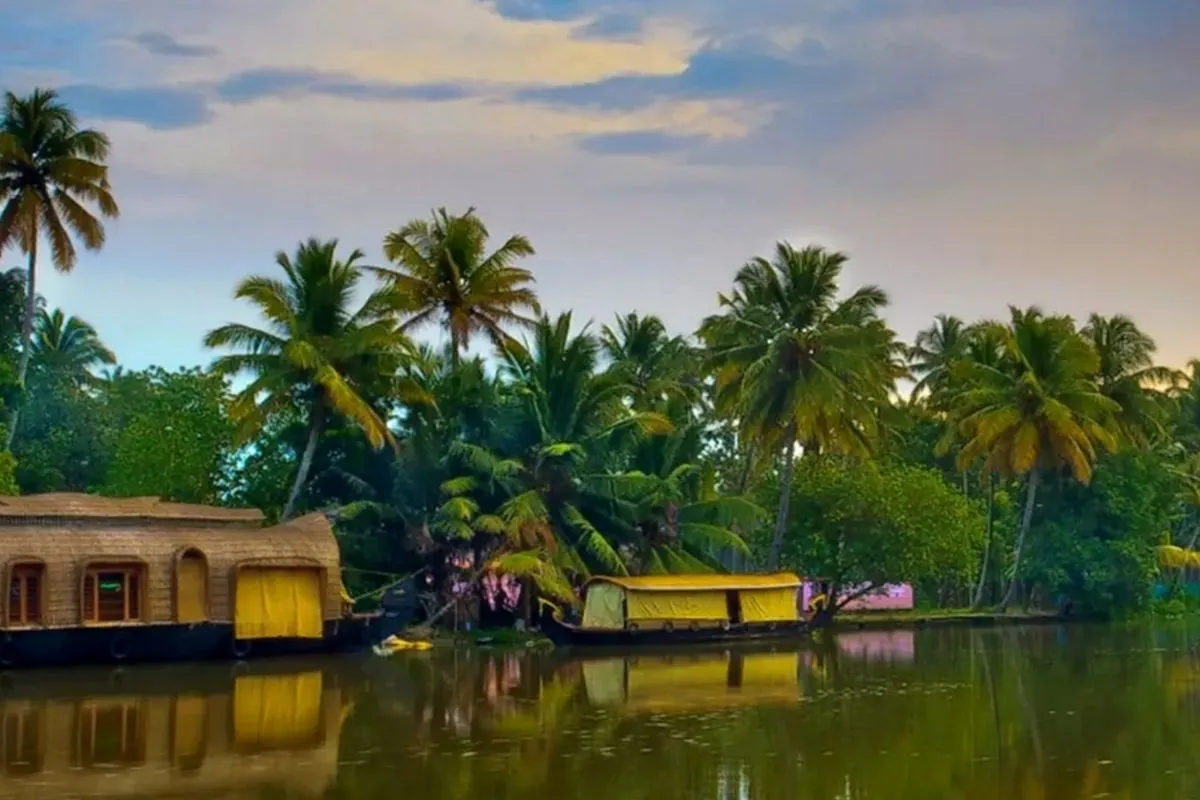Climate Change Intensifies Kerala's Deadly Landslides, Study Finds
Recent landslides in Kerala, India, exacerbated by climate change, killed hundreds. Scientists warn of more intense monsoons and urge preparation for future disasters in the region.

In a recent study, climate scientists have determined that human-induced climate change significantly intensified the devastating landslides that occurred in Kerala, India, last month. The World Weather Attribution group, known for their rapid analysis of extreme weather events, found that global warming increased the intensity of rainfall by 10% during the critical 24-hour period from July 29-30, 2024.
The heavy downpour, measuring 15 centimeters (5.91 inches), resulted in catastrophic landslides that claimed nearly 200 lives, with over 130 individuals still unaccounted for. This event marks the third-heaviest rainfall recorded in Kerala since India's weather agency began keeping records in 1901.
Mariam Zachariah, a climate scientist at Imperial College London and co-author of the study, emphasized the gravity of the situation, stating that the Wayanad landslides exemplify the real-time impacts of climate change. The research team projects that continued emissions of greenhouse gases will lead to more frequent intense downpours, potentially causing similar disasters in the future.
Kerala, known for its picturesque landscapes and rich cultural heritage, has been particularly susceptible to climate change-driven extreme weather events. The state, which boasts the highest literacy rate in India at 96.2% and the highest Human Development Index among Indian states, has faced recurring climate-related challenges in recent years.

In 2018, severe flooding affected large areas of Kerala, resulting in at least 500 fatalities. The following year, a cyclonic storm claimed the lives of approximately 250 people, including fishers working off the state's coast. These incidents highlight the increasing vulnerability of the region to climate-induced disasters.
Arpita Mondal, a climate scientist at the Indian Institute of Technology Bombay and study co-author, noted the dual climate threats facing India: "Millions of people are sweltering in deadly heat in the summer. Meanwhile, in monsoons, heavier downpours are fuelling floods and landslides, like we saw in Wayanad."
India, as the world's most populous country, faces a complex challenge. While it ranks among the highest current emitters of greenhouse gases, it is also considered one of the most vulnerable regions to climate impacts globally. This dichotomy underscores the urgent need for balanced climate action and adaptation strategies.
The study recommends several measures to mitigate future disasters, including:
- Implementing early warning systems for landslides
- Restricting construction activities in landslide-prone areas
- Minimizing deforestation and quarrying
- Improving evacuation systems
Madhavan Rajeevan, a retired senior official from India's Ministry of Earth Sciences, emphasized the changing nature of rainfall patterns: "When it rains now, it rains heavily. In a warmer world, these extreme events will be more frequent and we cannot stop them."
Kerala's unique geography, including the UNESCO World Heritage Site of the Western Ghats mountain range, contributes to its vulnerability to landslides during heavy rains. The study also noted a 62% decrease in forest cover in the Wayanad region, potentially exacerbating the risk of landslides during intense rainfall events.
As Kerala continues to grapple with the aftermath of this disaster, the urgency of preparing for future climate-related events becomes increasingly apparent. The state, known for its Ayurvedic traditions and being the first in India to achieve 100% primary education, must now focus on building resilience against the growing threat of climate change.
"Even heavier downpours are expected as the climate warms, which underscores the urgency to prepare for similar landslides in northern Kerala."
As the world continues to witness the impacts of climate change, the Kerala landslides serve as a stark reminder of the need for global action to reduce greenhouse gas emissions and implement effective adaptation strategies. The future of regions like Kerala, with their rich cultural heritage and natural beauty, depends on our collective response to this global challenge.


































